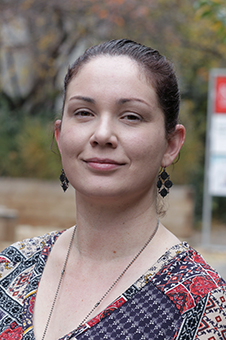Both Taiwan and New Zealand have successfully eliminated COVID-19 with world-leading pandemic responses. By taking a particularly proactive approach, Taiwan's response was probably the most effective and least disruptive of any country's, researchers say.

Dr Jennifer Summers.
In an article published in the international journal, The Lancet Regional Health: Western Pacific, researchers from the University of Otago, Wellington, the National Taiwan University and the Taiwan Centers for Disease Control, examine the pandemic responses of the two island countries 9,000 kilometres apart.
Both countries mounted very effective responses to COVID-19 and both had successfully eliminated community transmission by early August, although New Zealand experienced a localised outbreak in the Auckland region shortly after.
The lead author of the research paper, Dr Jennifer Summers, from the University of Otago, Wellington, says the two countries used different approaches to respond to their first waves of COVID-19.
Taiwan acted very early to control the virus, introducing health screening of air passengers on the day the World Health Organization was informed of the outbreak in Wuhan on 31 December 2019.
“Despite Taiwan's closer proximity to Wuhan and its high population density it experienced a substantially lower incidence rate of 20.7 cases per million compared with New Zealand's 278 per million.
“Their timely and vigorous response allowed Taiwan to avoid the national lockdown used in New Zealand to eliminate community transmission.”
In both countries, outbreaks of COVID-19 prompted public health officials to introduce a range of measures including contact tracing, testing and isolating of cases and quarantine of close contacts.

Professor Michael Baker.
Fellow author Professor Michael Baker from the University of Otago, Wellington, says Taiwan benefited by having a Centers for Disease Control in place, as well as a National Health Command Center dedicated to responding to emerging threats such as pandemics. Because of historically low levels of investment in public health, New Zealand was forced to take a more reactive approach to the pandemic with a stringent national lockdown to eliminate COVID-19 transmission while essential response capacities were rapidly developed.
“Taiwan's pandemic response had been extensively planned, partly as a result of their experience in the SARS pandemic in 2003, and was set up so it could be rapidly adapted to new pathogens.
“As in many Asian countries that had experiences with SARS, Taiwan had an established culture of face mask use by the public, as well as a proactive policy of supporting production and distribution of masks to all residents.”
Both countries provided social and financial support during the pandemic and have existing universal health coverage.
The researchers make a list of recommendations to other countries, particularly high-income nations, as they continue to respond to the current pandemic and prepare for the next one.
They include: establishing a national public health agency; developing a flexible pandemic plan; investing in resources and infrastructure to allow a rapid-response to disease threats; improving workforce training, including considering a field epidemiology training programme; auditing the pandemic response to date; and updating public health laws to enable pandemic control measures to be implemented while balancing the need to protect personal rights and liberties.
More detailed recommendations include the need to improve surveillance of disease outbreaks, develop effective border management policies, establish robust quarantine rules, further develop conventional and digital solutions to allow for contact tracing and quarantine and isolation monitoring and introduce an effective means of distributing face masks and promoting their use.
Publication details
Potential lessons from the Taiwan and New Zealand health responses to the COVID-19 pandemic
The Lancet Regional Health: Western Pacific
Taiwan announced its first confirmed case of COVID-19 on 21 January 2020, a 50+-year-old woman returning to Taiwan from her teaching job in Wuhan, the epicentre of the outbreak. New Zealand's first case was recorded on 28 February, a woman in her 60s, who arrived on 26 February from Iran via Bali.
For further information, please contact:
Professor Michael Baker
Department of Public Health
University of Otago, Wellington
Email michael.baker@otago.ac.nz
Dr Jennifer Summers
Senior Research Fellow
Department of Public Health
University of Otago, Wellington
Email jennifer.summers@otago.ac.nz
Cheryl Norrie
Communications Adviser
University of Otago, Wellington
Mob +64 21 249 6787
Email cheryl.norrie@otago.ac.nz
Find an Otago Expert
Use our Media Expertise Database to find an Otago researcher for media comment.